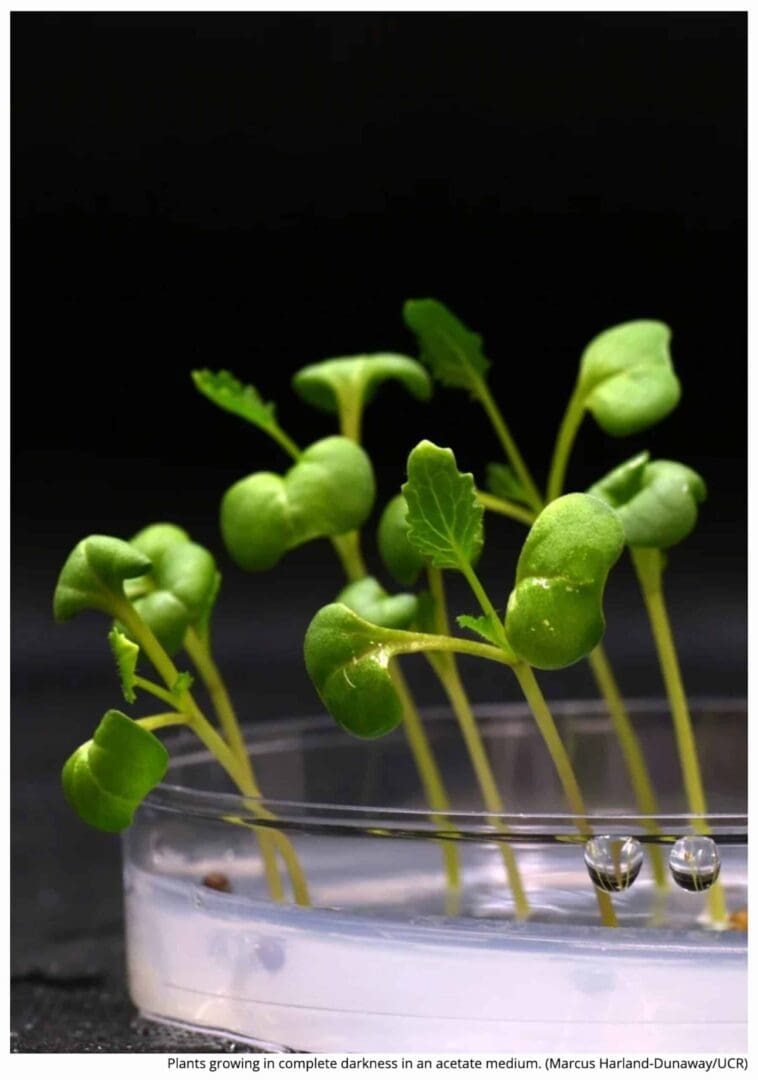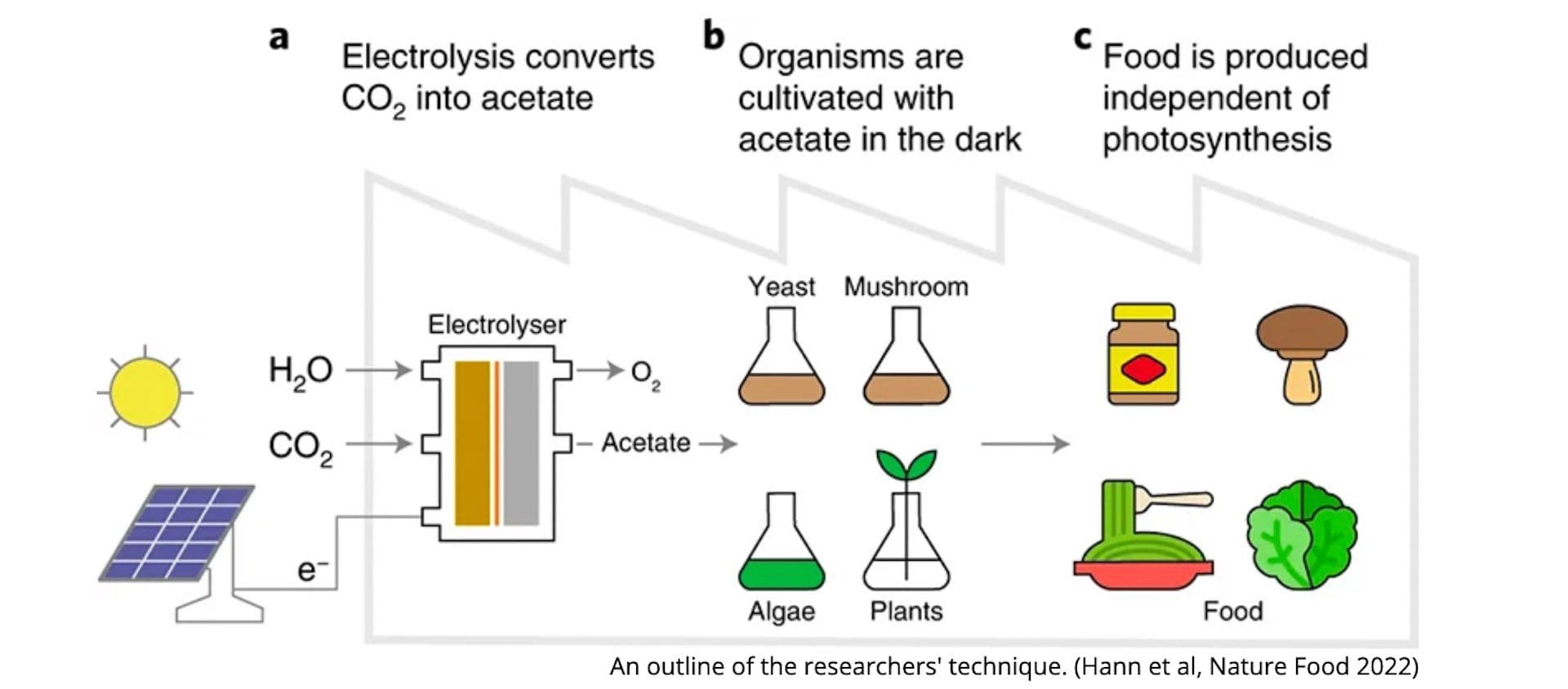Would you like to get notifications from Christian?
What happened? Photosynthesis is one of the most important processes on Earth, and it's something that scientists have been working to replicate artificially for years. Now, a new study has outlined an experimental artificial photosynthesis technique that could be the future of food production and more. The process deploys a two-step electrocatalytic process to turn carbon dioxide, water, and electricity generated by solar panels into acetate (the main component of vinegar). This acetate can then be harnessed by plants in order to grow.


Why is this important? Photosynthesis is the process of turning water, carbon dioxide, and sunlight into oxygen and energy – it's what helps plants to grow naturally. And while there are already artificial photosynthesis systems in place, they're often expensive and inefficient. This new technique, however, has the potential to be much more cost-effective and efficient – making it a potentially game-changing development.
So why do we need artificial Photosynthesis? Photosynthesis is one of the most important processes on Earth – it's what helps to produce the oxygen we breathe and the food we eat. But as our population continues to grow, we're putting more and more strain on the natural resources that sustain us. That's why it's so important to find ways to replicate and improve upon Photosynthesis – so that we can produce the food and energy we need without damaging the planet.

The study was undertaken by a team of researchers from NASA's Jet Propulsion Laboratory and the University of California, Irvine, and it's been published in the journal Nature Energy.
What's next? The researchers are now working on scaling up their system so that it can be used to produce more acetate – and, eventually, to create other products like fuel. This is a potentially groundbreaking development that could help us sustainably produce the food and energy we need in the future.
What do you think? Are you excited about this new development? Let us know in the comments below.
Author: Christian Kromme
First Appeared On: Disruptive Inspiration Daily
Christian is a futurist and trendwatcher who speaks about the impact of exponential technologies like AI on organizations, people, and talents. Christian tailors his presentations to your audience's specific industries and needs.



Our world is changing at an exponential rate! A big tidal wave of digital transformation and disruption is coming at us fast. Many organizations see this wave as a threat and experience stress, but there are also organizations that just see this wave as an opportunity.

Imagine sitting with just 10-15 fellow executives at a premier location, gaining clarity on the impact of AI on your industry while enjoying an exquisite dining experience. These are not just meetings—they are transformative moments that will shape the future of your organization



In the future, 3D printing and generative design will allow for products to be designed in a more decentralized manner, and production will take place closer to the customer and fully on-demand. 3D printing technology will also allow for more customization and personalization of products.


The agricultural industry is ripe for disruption. Robotics, AI, and IoT are all technologies that have the potential to radically transform the way we grow food. In combination with vertical farming, these technologies could increase the efficiency and quality of agricultural products.

A human-centered society is one that puts people first and where technology is used to unite and empower people. It is a society that values biological life and dignity above all else. It is a society that recognizes the importance of human relationships and works to strengthen them. In a human-centered society, all members of the community are valued and treated with respect.


The future of healthcare is here. New technologies like AI, IoT, big data, and smart sensors make it possible to become the CEO of your own health. Imagine that your phone can listen to your voice and AI algorithms can detect small nuances in the tone of your voice that indicate specific diseases.
